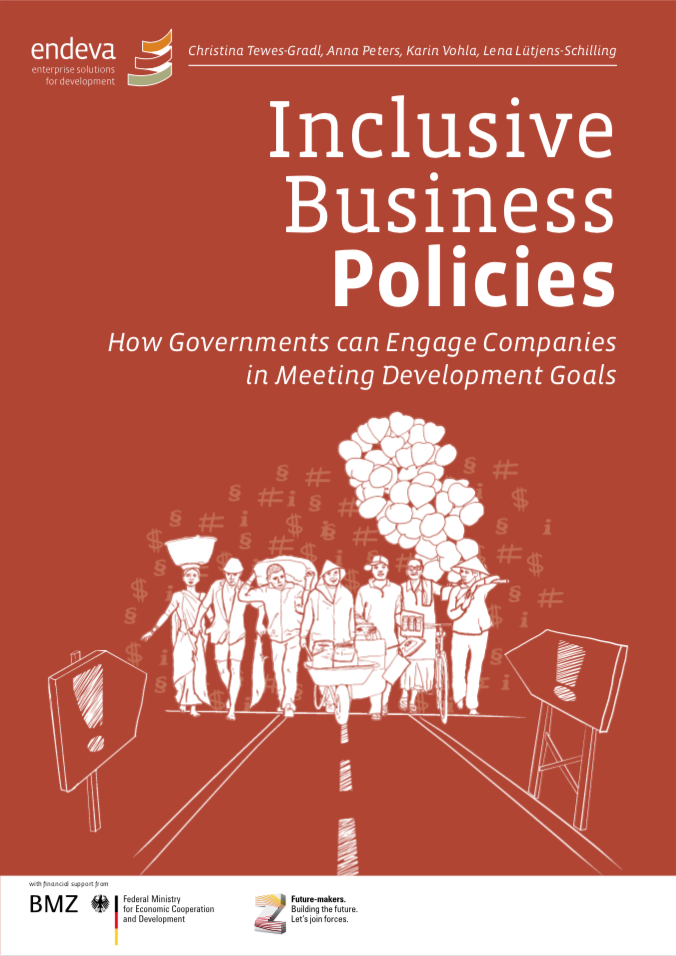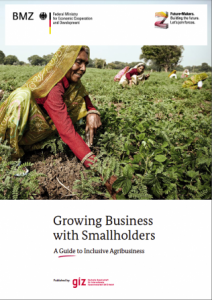Inclusive business policies are government decisions that directly support mutually beneficial business relationships between private-sector companies and poor people. Such policies can enable and encourage companies to include poor people in their value chains. They can also empower poor people to engage with companies. This new study, funded by BMZ, provides a toolbox for policymakers to explore the range of policy options for promoting inclusive business. Based on a review of 158 existing examples, 19 concrete instruments have been identified, of which 11 are profiled in depth. Four detailed case studies reveal critical success factors and strategies for the policymaking process for inclusive business. The study provides recommendations for governments, donors, companies, and other actors on how to advance this emerging field.

Inclusive Business Policies: How Governments can Engage Companies in Meeting Development Goals
Anna Peters, Christina Tewes-Gradl, Karin Vohla, Lena Lütjens-Schilling
Reports



